News feed
Students also performed Tibor Kapu’s space experiments
2025. 07. 10.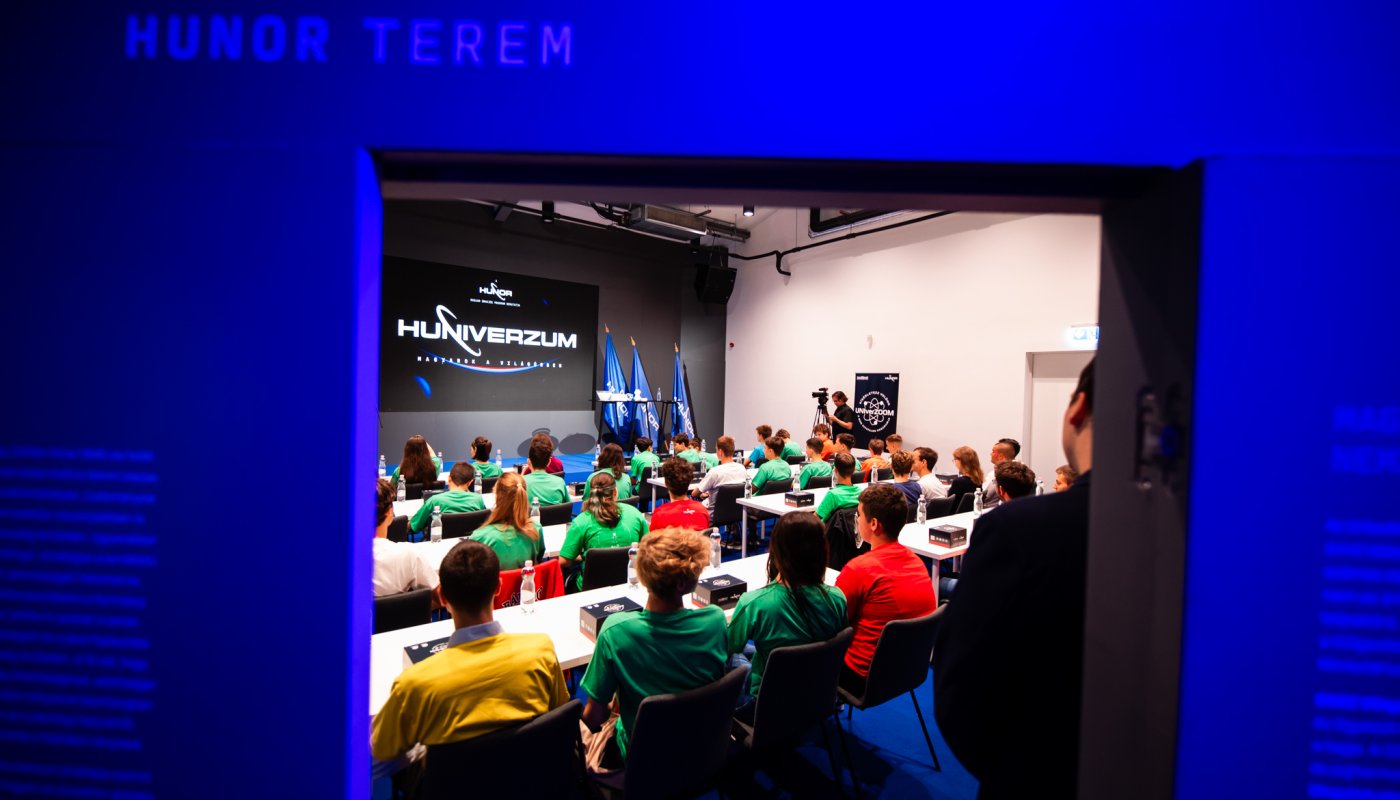
Close to 40 students along with physicists from BME and ELTE conducted experiments at the HUNiverzum Visitor Centre to repeat those carried out by the HUNOR space programme’s astronaut in space.
Despite the summer break, enthusiastic students volunteered for one of the most exciting scientific experiences of our time, a special physics class with Tibor Kapu. The special programme was held on July 9 at the “HUNIVERZUM – Hungarians in Space” interactive experience centre in Millenáris Park, where the experiments presented by the second Hungarian astronaut were carried out under terrestrial conditions by the students under the guidance of physicists Károly Härtlein and Miklós Vincze as well as applied mathematicians Krisztina Regős and Gábor Domokos.
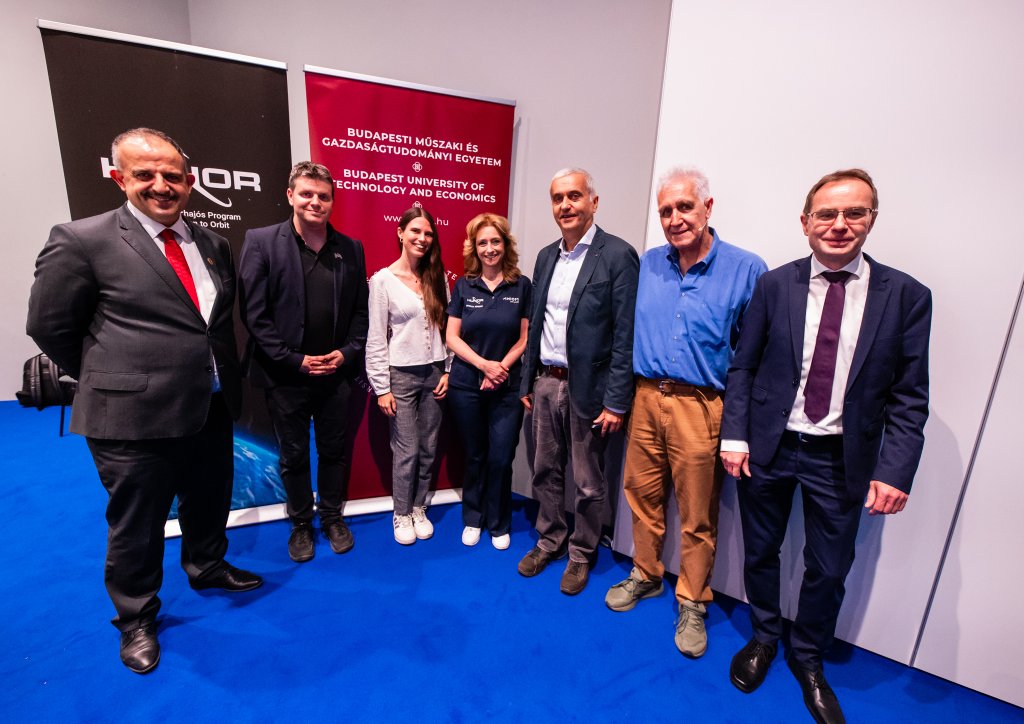
The students were greeted by Balázs Hankó, Minister of Culture and Innovation, Orsolya Ferencz, Ministerial Commissioner for Space Research, and Hassan Charaf, Rector of the Budapest University of Technology and Economics (BME). Citing multiple examples, Balázs Hankó highlighted the many domains in which Hungarians have showcased their talents, and encouraged the young people present to discover and develop their own talents.
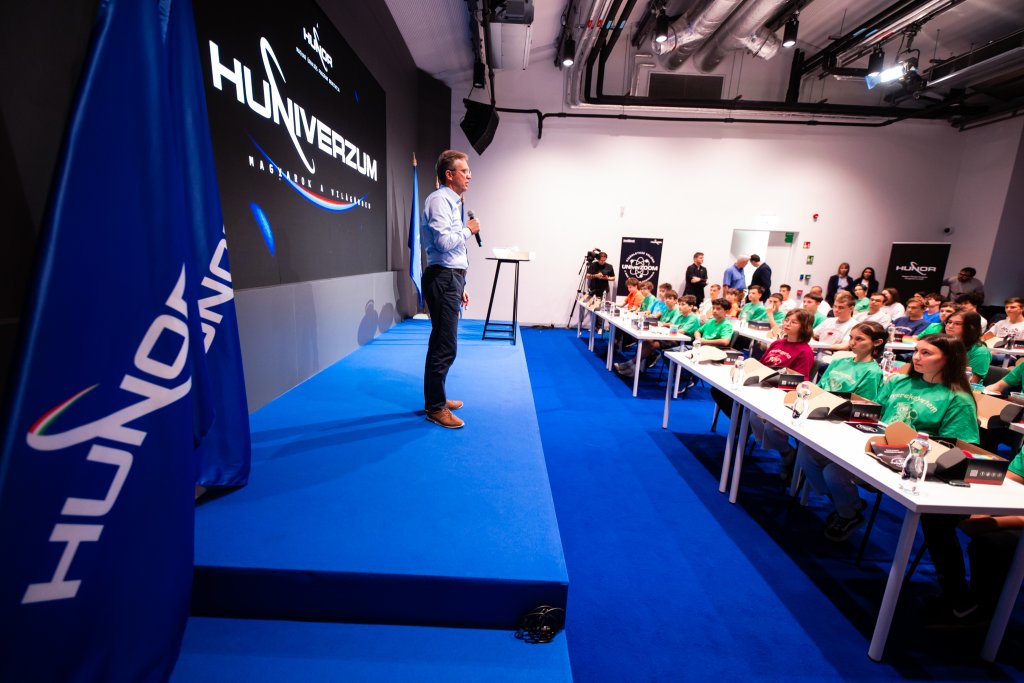
Hassan Charaf highlighted that BME has long played a dominant role in the space industry through its contributions to many space research projects and developments. “Both Tibor Kapu, the Hungarian crew member of the current space mission, and his reserve, Gyula Cserényi, earned their engineering degrees at our university, which further strengthens this relationship,” the rector emphasized the importance of the university as an alma mater, and continued that “in 2022, we also launched our aerospace engineering master programme, which clearly shows that the Budapest University of Technology and Economics plays a central role in the supply of space research and space industry professionals in Hungary.” He also thanked the Minister and the Ministerial Commissioner for all their support in reaching this goal and completing this task.
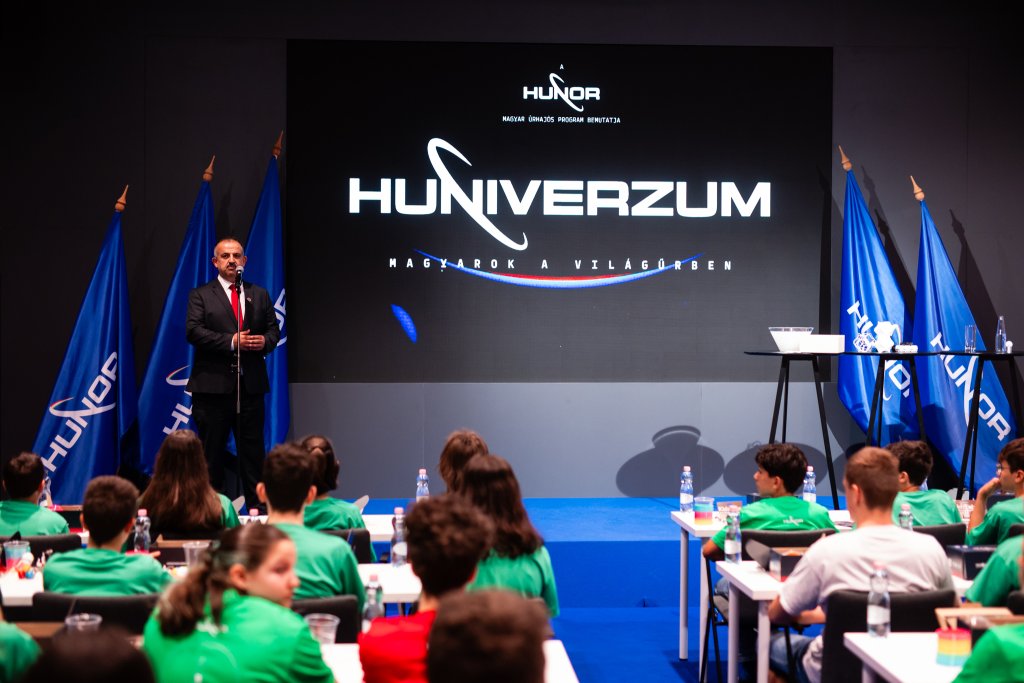
The special physics class began with an introduction by Dr. Boldizsár Balázs, deputy director of the research and development team of the HUNOR programme, who, before introducing the experiment hosts, explained that “the Hungarian research astronaut programme Hunor would like to provide the Hungarian researchers of the present with opportunities in space” while emphasizing the importance of youth and addressing students by saying that “the best way to serve Hungarian science is to encourage you all, the scientists of the future, to walk down this path”.
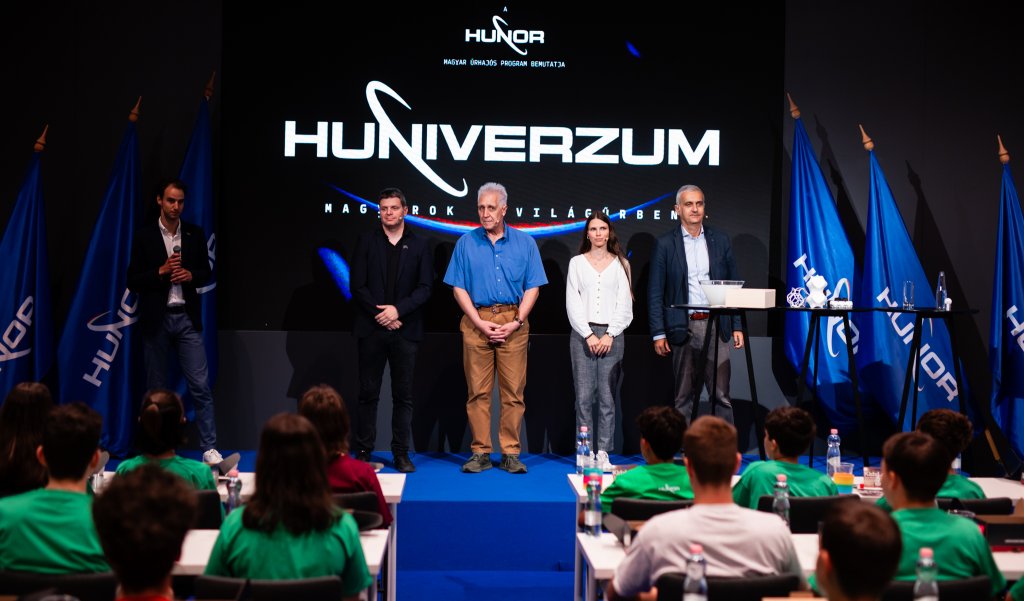
Next, recordings of Tibor Kapu’s experiments were shown, which the young attendees, under the supervision of the experiment hosts, were able to replicate themselves using the kits provided, and they could experience first-hand how specific bodies behaved differently in the state of weightlessness compared to the Earth’s gravity.
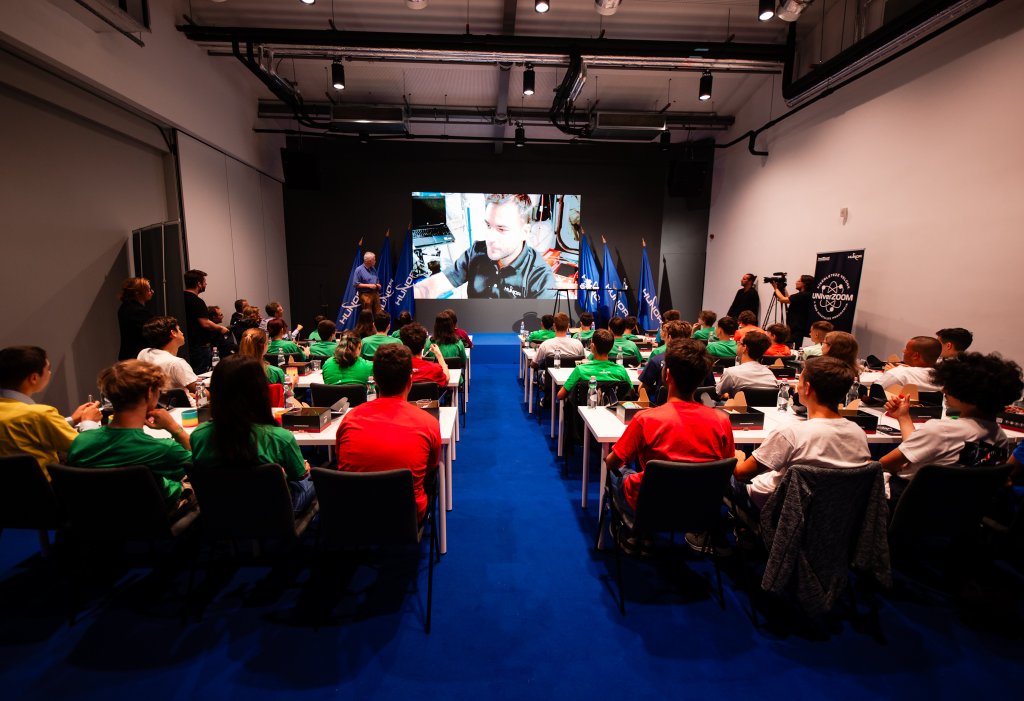
The event was a joint initiative of UNIverZOOM, BME and the HUNOR Hungarian Astronaut Programme. A total of 313 educational institutions, including 10 from neighbouring countries, have applied to the UNIverZOOM programme, which allows hundreds of students to replicate Tibor Kapu’s microgravity experiments conducted on board of the International Space Station in their own classrooms and under terrestrial conditions. The UNIverZOOM project aims to raise young people’s interests in natural sciences through experience-based learning and real space experiments, thereby drawing closer as many of them as possible to engineering and natural sciences. The physics teachers and their students of the selected schools, at least 15-20 per school, prepare for the collaboration with the experimental packages, online mentoring and training provided by BME.
The members of the Axiom-4 mission, including Hungarian astronaut Tibor Kapu, an alumnus of BME’s Faculty of Mechanical Engineering, travelled on board a SpaceX Crew Dragon spacecraft powered by a Falcon-9 rocket to the International Space Station (ISS), where they are currently conducting almost 60 scientific experiments of 31 countries to advance microgravity research. One of the 25 experiments carried out as part of the Hungarian HUNOR programme, which may be of great importance for astronautics and terrestrial healthcare, was described in more detail by BME’s lecturers at bme.hu.
Rector's Office, Department of Communications
